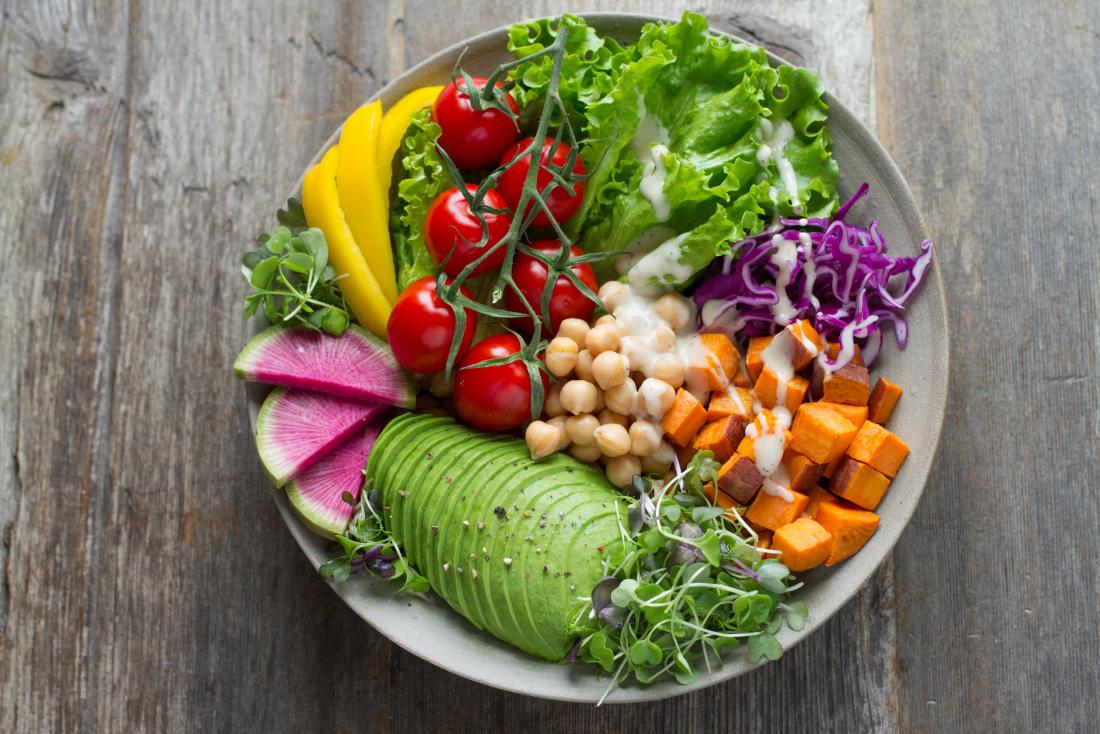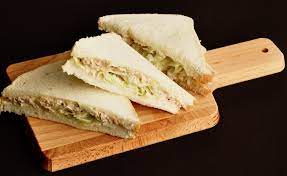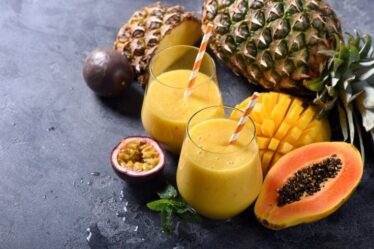
Many people who are not familiar with a vegan diet may believe that you cannot get all of the nutrients you need by eating plant-based. But this is entirely incorrect. You can get all of the protein, iron, and vitamins you need for a healthy life.
In fact, a vegan diet can also provide many health benefits that can make the diet an attractive choice. For instance, a diet based on plants is actually associated with lower cholesterol levels. There are plenty of nutritious plant-based foods that not only supplement your daily nutrition needs but taste delicious too! So even if you’re not vegan, try out some delicious vegan recipes!
What Nutrients Do Our Bodies Need?
Whether you are a vegan or not, there is no doubt that the human body needs plenty of nutrition to function properly. Our bodies need a balance of each of the three main macronutrients – protein, carbohydrates, and fat. Macronutrients are essential to the body, and they are broken down to create energy for the body.
While your body must have large quantities of all these nutrients, it doesn’t matter what source you get it from. For instance, you can get all the protein you need from plant-based meat alternatives and still be super healthy.
Micronutrients, which include vitamins and minerals, are also important to bodily functions,
However, you need them in much fewer quantities. Eating a variety of fruits and vegetables can help you fulfill your dietary needs. One way to help you get a nutritionally balanced meal is to try and eat the rainbow. For example, you can make plenty of vegan meals with bright and vibrant fruits and vegetables throughout the day, such as beets, leafy greens, beans, rice, carrots, almonds, bananas, tofu, etc. The options are endless!
Even though you can likely get all of the proper nutrients your body needs by simply eating a balanced vegan diet, here are a few food groups you should make sure you are eating.
Include protein in your vegan diet.
There is a common misconception that vegan people are unable to get enough protein. However, this is not true at all! There are plenty of vegan foods that are high in protein. If you worry about consuming enough protein, you can eat plenty of legumes.
Legume is a family of plants that includes beans, lentils, peas, soy products, edamame, chickpeas, and peanuts. Legumes are generally a significant part of plant-based diets because of their high protein content. They are the perfect substitute for meat since they are versatile, nutritious, and can be formed into plant-based meatballs and patties.
Iron is also easily found in your vegan diet plan.
Iron is a nutrient that is typically associated with red meat, but many vegan and vegetarian ingredients are high in iron. Many people are iron deficient, including meat-eaters, but luckily, you can increase the amount of iron in your body by consuming foods rich in iron. Vegan foods rich in iron include iron-fortified cereal, whole grains, peas, spinach, kale, dried fruit, pumpkin seeds, chia seeds, quinoa, and beans.
Iron is an important part of our vascular system as it helps red blood cells carry oxygen throughout the body. It is also important for general growth and development, so make sure to eat enough iron in your daily diet.
Vitamin D is easily available through a series of vegan ingredients.
Vitamin D is a necessary vitamin that helps us absorb calcium. Many people take vitamin D supplements if they don’t get enough from the foods they eat or from exposure to sunlight. It is highly common to be vitamin D deficient, but eating foods fortified with vitamin D is an excellent way to ensure you get your daily nutrients.
Vegan foods high in vitamin D include mushrooms, fortified almond milk, fortified soy milk, and fortified cereals. You can also spend more time in the sun, but it is important to wear sunscreen and take proper precautions to protect your skin from sun damage.
Vitamin B-12 helps create red blood cells and DNA, and it also plays a significant role in the nervous system.
Most people get B-12 from animal sources such as poultry, fish, meat, and dairy products. That’s why it has been said that vegans and vegetarians are more likely to be Vitamin B-12 deficient. There are some vegan sources of vitamin B-12, including vegan fortified plant milk, cereals, and soy products. If you are deficient in Vitamin B-12, you can also take supplements or use a nasal spray.
Most people associate calcium with dairy.
However, there are plenty of other vegan foods that can give you the necessary daily calcium intake. Calcium is essential for bone growth and maintaining healthy teeth. It is important to get enough calcium, so you don’t lose bone mass or have weak bones.
Foods made from soy, such as tofu, natto, and tempeh, are excellent sources of calcium. They can also act as a meat substitute for many dishes. Almonds and Brazil nuts also contain calcium and make for a tasty, nutritious snack.
What to do if you are not getting enough nutrients? Here’s how you can know all about it.
There are a few symptoms that may indicate you are not getting enough nutrients, such as feeling fatigued, thinning hair, brittle nails, or cracked skin. If you have any of these symptoms or feel you may not be getting enough nutrients, schedule an appointment with your physician. They will run tests and check to see if there are any nutrients that you may need to add to your diet. You can also track your daily nutritional intake by recording your food intake. A food journal can help you manage the type as well as the number of nutrients your body gets per meal.
A vegan diet is very healthy and can provide all the daily nutrients needed to lead a healthy lifestyle.
While the nutrients discussed above are some of the main nutrients you should look for when eating a vegan diet, there are plenty of other nutrients that are also important for a balanced diet. So, remember to broaden your diet and try to incorporate many different types of food. This will ensure you get all the nutrients you need.
Bio:
Hi, I’m Rana and I blog at ranasrecipe.com. My passion for food began very early in my life. And after managing a cafe, a granola business and helping other food businesses scale up, I found my true calling in creating wonderful recipes so that everyone can enjoy cooking as much as I do! Don’t forget to follow me on my social channels- instagram and pinterest.
Pinterest: https://in.pinterest.com/ranasrecipe/


